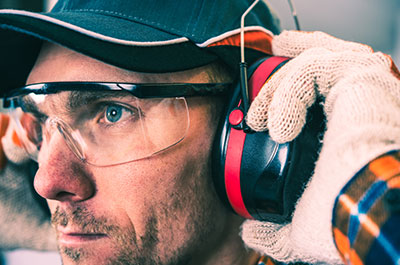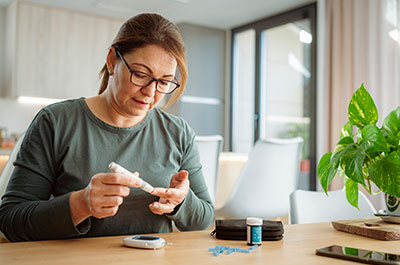Let's get right to it: Did you know that everyone has hemorrhoids, or clusters of blood vessels that line the anus? They are actually a normal part of our anatomy, as they help maintain continence. They also help you sense whether it's a bowel movement that's coming--or just gas.
When hemorrhoids swell up or get inflamed, however, is when issues arise: swelling and inflammation can cause symptoms like pain, itching, bleeding and irritation that makes sitting uncomfortable. The swelling can occur inside the rectum (these are called internal hemorrhoids) or less frequently, just outside near the anus (these are called external hemorrhoids).
What Increases Your Risk Of Symptomatic Hemorrhoids?
Men and women are equally at risk for experiencing problematic hemorrhoids, and they become more common as we get older. “As we age, we are more likely to have symptoms from hemorrhoids,” says Abigail Entz, M.D., a primary care physician at Henry Ford Health.
One of the main causes of hemorrhoids is chronic constipation. “When you strain to have a bowel movement, you put a lot of pressure on those veins,” says Dr. Entz. “That forces more blood into the area, where it can pool and lead to swollen blood vessels."
The added pressure on your pelvis during pregnancy can have the same effect. As the uterus gets larger and heavier, it presses on the vessels around the rectum. That, combined with increased blood volume during pregnancy, can lead to symptomatic hemorrhoids.
Ways To Manage Hemorrhoid Symptoms
Luckily, there are several ways to relieve hemorrhoid symptoms at home. Over-the-counter remedies include:
- Sitz baths: Dr. Entz recommends soaking in a warm bath for about 15 minutes, three times a day. You can add a packet of bath salts designed to soothe hemorrhoids.
- Steroid cream or suppositories: Creams or suppositories that contain low amounts of cortisone help to reduce swelling and relieve pain. But don’t use them for more than a week. “The steroid can thin the skin and lead to more irritation if you use it for too long,” says Dr. Entz.
- Donut pillow: If the enlarged veins make sitting uncomfortable, a donut-shaped cushion can help take pressure off the area.
When To See A Doctor For Hemorrhoid Treatment
For most people, over-the-counter remedies are enough to relieve symptoms. “But if over-the-counter remedies don’t work, you should see your doctor,” advises Dr. Entz.
Your doctor can prescribe a stronger steroid cream or suppository and can help identify other ways to reduce your risk of recurring hemorrhoid symptoms. In rare cases, doctors surgically remove chronic hemorrhoids.
If you suspect you have a swollen hemorrhoid for the first time, Dr. Entz suggests seeing your doctor for an accurate diagnosis. Some symptoms — such as a change in bowel habits, pain or bleeding — can sometimes be signs of other, more serious, conditions.
How To Prevent Hemorrhoid Symptoms
The best way to prevent symptomatic hemorrhoids is to avoid constipation and stay hydrated. If you find yourself straining and pushing to try to go, you’re putting yourself at risk of swollen or inflamed hemorrhoids. “Don’t sit on the toilet for longer than three to five minutes,” says Dr. Entz. “If you can’t go in that time, get up, move around, drink some water and try again.”
To help keep you regular, be sure your diet includes plenty of fiber — at least 20 to 35 grams per day. If you can’t get enough by eating a variety of fruits, vegetables and whole grains, talk to your doctor about adding a fiber supplement. As you increase the fiber in your diet, be sure to also increase your water intake. “You need to stay hydrated in order to help keep things moving,” says Dr. Entz.
To find a doctor at Henry Ford, visit henryford.com or call 1-800-436-7936.
Dr. Abigail Entz is an internal medicine physician who sees patients at Henry Ford Hospital in Detroit.



